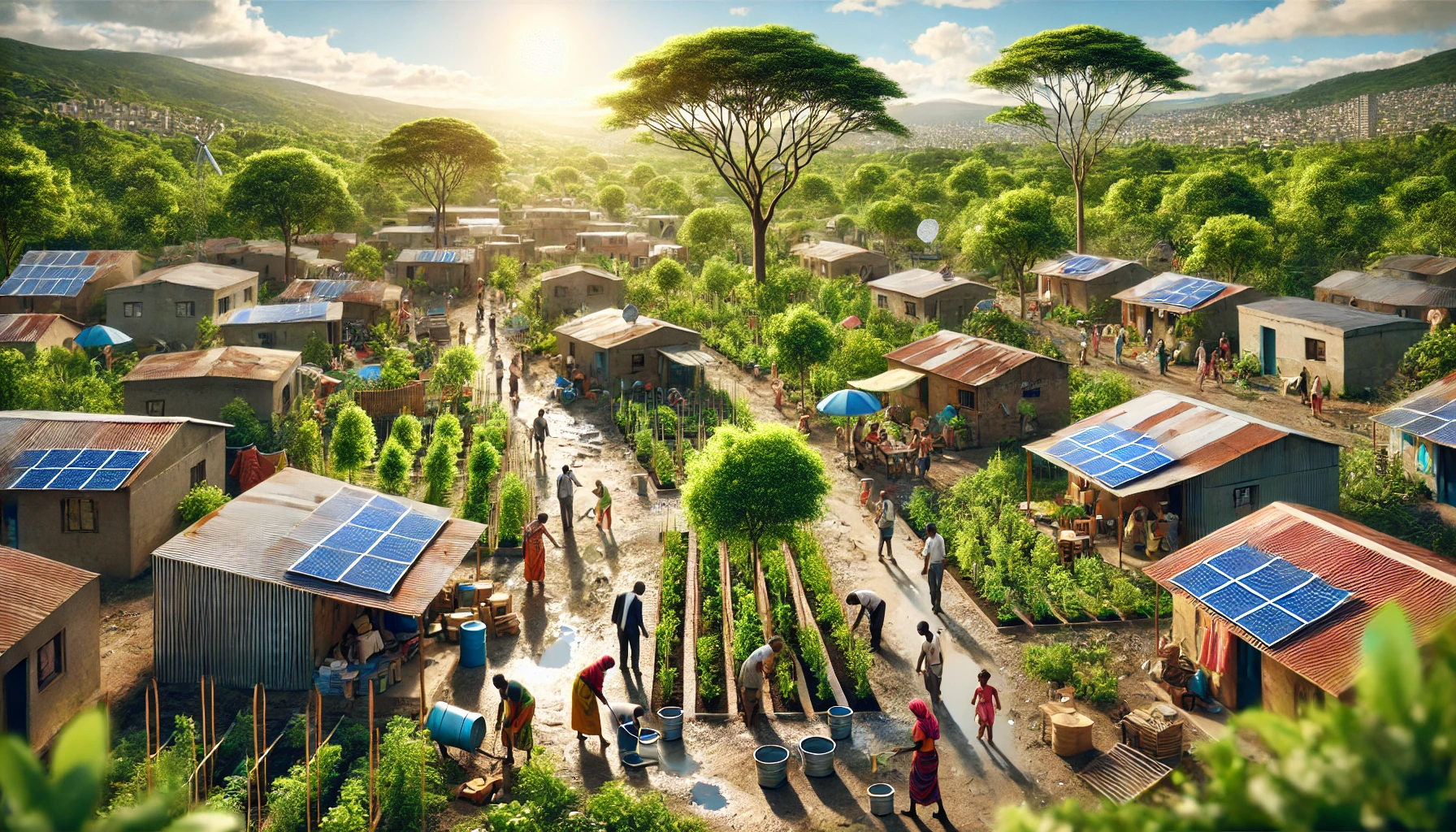World Bank Backs Green Urban Growth in CAR With $9.2M Climate Resilience Grant
The new funding will support the Inclusive and Resilient Cities Project (PROVIR), which is aimed at improving living conditions in the climate-vulnerable cities of Bangui and Berbérati.

The World Bank has approved an additional $9.175 million grant—equivalent to over CFAF 5.3 billion—from the Global Environment Facility (GEF) to bolster climate-resilient urban development in the Central African Republic (CAR). The new funding will support the Inclusive and Resilient Cities Project (PROVIR), which is aimed at improving living conditions in the climate-vulnerable cities of Bangui and Berbérati.
This latest grant reinforces the World Bank’s continued commitment to supporting fragile and climate-threatened nations, particularly in Sub-Saharan Africa. The investment is expected to benefit more than 300,000 people, with a special focus on vulnerable communities, including refugees, internally displaced persons (IDPs), returnees, women, and youth.
Nature-Based Solutions at the Forefront
The core of the additional financing lies in Nature-based Solutions (NbS)—innovative approaches that leverage ecosystems to address urban climate challenges. These solutions will include the restoration of urban forests, planting of trees along public avenues, and greening of public spaces, all aimed at enhancing the cities’ resilience to climate-induced disasters such as flooding and soil erosion.
By combining NbS with traditional grey infrastructure, PROVIR will significantly increase rainwater retention capacity, offering protection during increasingly erratic rainy seasons. This integration is particularly vital for Bangui, the capital city, which has seen severe flooding events in recent years, displacing thousands and damaging homes and infrastructure.
“The Central African Republic, which is ranked second globally in terms of vulnerability to climate change, faces mounting disaster risks intensified by deforestation and global warming,” said Guido Rurangwa, World Bank Country Manager for CAR.
“Nature-based solutions have immense potential here. When combined with grey infrastructure in Bangui and Berbérati, they not only mitigate floods and erosion but also offer diverse livelihood opportunities—from forest products to fishing.”
Building Livable, Climate-Resilient Cities
The Inclusive and Resilient Cities Project (PROVIR) is part of the World Bank’s broader urban development agenda in CAR. It aligns with the World Bank Group’s Climate Change Action Plan (2021–2025), which promotes green, resilient, and inclusive development (GRID). The initiative seeks to strengthen municipal capacity, rehabilitate degraded urban environments, and promote long-term sustainability in cities that have long suffered from underinvestment and instability.
Notably, PROVIR also contributes to:
-
Enhancing the adaptive capacity of urban populations
-
Creating green jobs through reforestation and urban greening
-
Reinforcing social cohesion by involving communities in urban planning and climate action
-
Improving public health by providing shaded areas, reducing heat islands, and enhancing air quality
Multilateral Support and Collaborative Expertise
The successful planning and design of this additional financing package were supported by global partners with deep expertise in climate resilience and urban infrastructure. Technical assistance came from:
-
The Global Facility for Disaster Reduction and Recovery (GFDRR)
-
The City Climate Finance Gap Fund (Gap Fund)
-
NBS Invest, a platform dedicated to promoting investment in nature-based solutions
These partnerships provided essential funding and advisory support to shape project components and ensure alignment with international best practices in urban climate adaptation and disaster risk management.
A Model for Climate Action in Fragile States
The World Bank’s renewed support for CAR through PROVIR offers a replicable model for how climate finance can be used to empower communities, build resilient cities, and tackle urban vulnerability in post-conflict and fragile settings.
In a country where more than half of the population lives below the poverty line and climate risks are mounting, initiatives like PROVIR represent more than environmental upgrades—they offer a pathway to recovery, dignity, and opportunity for hundreds of thousands of citizens.
As the climate crisis accelerates, the stakes for CAR’s cities grow higher. With this latest injection of funding, the World Bank and its partners are helping Bangui and Berbérati move toward a greener, safer, and more inclusive future.










